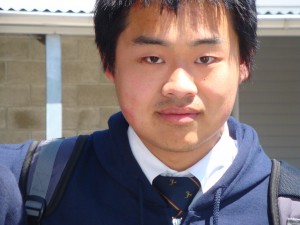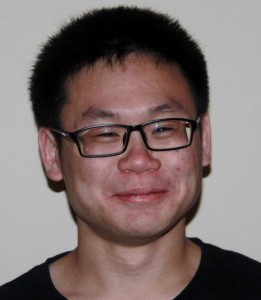Meet Statistics summer scholar Xiangjie Xue
 Every summer, the Department of Statistics offers scholarships to a number of students so they can work with staff on real-world projects. Xiangjie, right, is working on vector generalized linear and additive models (VGAM) for R with Dr Thomas Lee. Xiangjie explains:
Every summer, the Department of Statistics offers scholarships to a number of students so they can work with staff on real-world projects. Xiangjie, right, is working on vector generalized linear and additive models (VGAM) for R with Dr Thomas Lee. Xiangjie explains:
“I am trying to help Dr Yee to improve the functionality of the VGAM package. This includes writing some functions from scratch, improving the efficiency of the existing functions and testing functions. To do this, I will need to learn the underlying structure of R and write or translate some functions from other computing languages to C or R.
“I came to the University of Auckland to do my undergraduate Applied Mathematics and Operations Research in 2012.
“After I finished, I received offers to do both Applied Mathematics and Statistics. When I was trying to decide the topic of my Honours project, I realised that Statistics covers a very broad range of topics and that they are very closely related to each other – I could learn data analysis, computing or probability theory and stochastic processes. All of these topics are really useful in our daily lives. I was really fascinated by this, so I decided to study Statistics instead of Applied Mathematics. I am thinking about pursuing a masters degree or a PhD in Statistics this year.
“This summer, I am hoping to travel more in New Zealand. In fact I went camping recently with my high-school friends in Whangarei and the Bay of Islands region and I had a great time. Besides travelling, I’d like to spend some time relaxing at home, watching my favourite shows.”
 Every summer, the Department of Statistics offers scholarships to a number of students so they can work with staff on real-world projects. Eva, right, is working on a sociolinguistic study with Dr Steffen Klaere. Eva, right, explains:
Every summer, the Department of Statistics offers scholarships to a number of students so they can work with staff on real-world projects. Eva, right, is working on a sociolinguistic study with Dr Steffen Klaere. Eva, right, explains:
 Every summer, the Department of Statistics offers scholarships to a number of students so they can work with staff on real-world projects. David, right, is working on the New Zealand General Social Survey 2014 with Professor Thomas Lumley and Associate Professor Brian McArdle of Statistics, and Senior Research Fellow Roy Lay-Yee and Professor Peter Davis from COMPASS, the Centre of Methods and Policy Application in the Social Sciences. David explains:
Every summer, the Department of Statistics offers scholarships to a number of students so they can work with staff on real-world projects. David, right, is working on the New Zealand General Social Survey 2014 with Professor Thomas Lumley and Associate Professor Brian McArdle of Statistics, and Senior Research Fellow Roy Lay-Yee and Professor Peter Davis from COMPASS, the Centre of Methods and Policy Application in the Social Sciences. David explains: